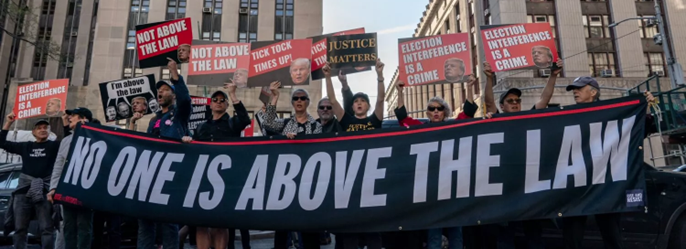This study investigates the professional challenges faced by lawyers in authoritarian regimes.
Archive
Cheh (2005), “Should Lawyers Participate in Rigged Systems: The Case of the Military Commissions”
This article examines whether lawyers should participate in legal proceedings that offer only the illusion of justice, potentially legitimizing a flawed system, or instead refuse involvement to preserve professional integrity.
Farbman (2019), “Resistance Lawyering”
The article invites contemporary lawyers to learn from this integration of daily legal work and political struggle as a model for resistance within unjust systems.
Ahl (2014), “Retaining Judicial Professionalism: The New Guiding Cases Mechanism of the Supreme People’s Court.”
Björn Ahl, “Retaining Judicial Professionalism: The New Guiding Cases Mechanism of the Supreme People’s Court.” The China Quarterly, vol. 217 (2014): 121–39. Summary: In 2011 and 2012, the Supreme People’s Court (SPC) published its first …
Godsoe, Smith, Yaroshefsky (2022), “Can You Be a Legal Ethics Scholar and Have Guts?”
The article also offers a framework for action, including filing disciplinary complaints and embracing a more publicly engaged model of legal ethics scholarship.
Ahl (2019), ” Judicialization in authoritarian regimes: The expansion of powers of the Chinese Supreme People’s Court”
Bjorn Ahl, “Judicialization in authoritarian regimes: The expansion of powers of the Chinese Supreme People’s Court.” International Journal of Constitutional Law, Volume 17, Issue 1 (January 2019): Pages 252–277 Summary: Over the past two decades …
Kroncke (2025), “Legal Complicity in an Age of Resurgent Authoritarianism”
This article critiques the ethical assumptions underlying liberal legal professionals’ engagement with authoritarian regimes, particularly through the lens of modernization theory, which once promised that economic development would naturally lead to democratization.
Petrigh (2024), “Counseling Oppression”
This article critically examines the role of public defenders in counseling clients within a carceral system, highlighting how the act of legal counseling can simultaneously reinforce systemic oppression and serve as a site for resistance and transformation.
Ashar (2007), “Public Interest Lawyers and Resistance Movements”
This article examines how public interest lawyers engage with and support resistance movements that challenge the economic, political, and social consequences of globalization and neoliberalism.
Halliday, Karpik, Feeley (2007), Fighting for Political Freedom: Comparative Studies of the Legal Complex and Political Liberalism
This book explores the global role of lawyers and the broader “legal complex” as central actors in the struggle for political liberalism.
